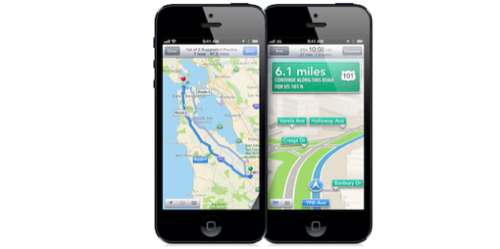
When Apple showed off iOS 6 Maps in June, few could have imagined the fiasco that would ensue three months later. Indeed, the last person expecting such major fallout was CEO Tim Cook, who today issued a rare public apology. While it could have gone further, the statement was a bold move by a company not accustomed to admitting its faults.
This is a big deal for Apple. Perfection – or at least the appearance of it – is a central component of the company’s brand. Its last public black eye, a psuedo-social network called Ping, was being laid to rest just as critics and customers were winding up this new punch.
Apple never explicitly admitted failure with Ping. Instead, it quietly put its social scheme to rest in favor of integrating with established social networks. Steve Jobs didn’t apologize to consumers even after the massive PR headache of Antennagate in 2010, when the company offered free bumper cases to help alleviate the issue.
But Apple had no choice but to address the Maps issue. It quickly overshadowed the iPhone 5 itself, the latest entry in a product line from which Apple draws an enormous percentage of its revenue. Cook went so far as to suggest competing products as alternatives while Apple irons out the kinks. And yes, that list included the Google Maps web app.
Cook’s apology could have gone further. Why not offer an iOS 6-compatible version of the old Maps app in the App Store? Or, if users want to, let them easily downgrade to iOS 5? Of course, if he did that, Cook might not have been able to tout 100 million people using the new operating system.
Absent a drastic move like that, the apology will do. Apple has admitted fault, offered alternatives and assured the masses that it’s working on the problem. Apple’s Maps is a nice-looking product with a few very useful new features. We’re confident it will mature into something awesome. In the meantime, Google, hurry up and ship Maps for iOS. Apple got its bad press. Now give the rest of us a hand.

















